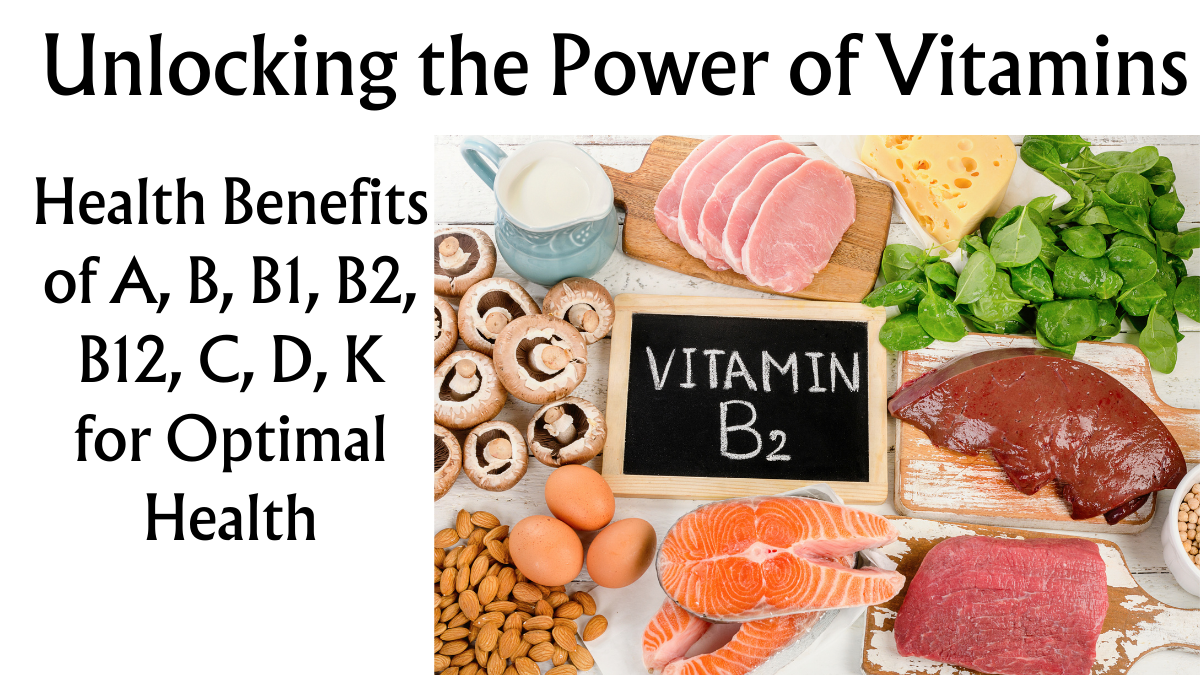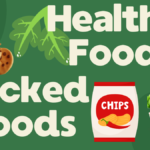Unlocking the Power of Vitamins: Health Benefits of A, B, B1, B2, B12, C, D, K for Optimal Health
Vitamins are the unsung heroes of our well-being, playing crucial roles in various bodily functions. Let’s delve into the specifics of each vitamin and uncover their health benefits.
Health Benefits of A, B, B1, B2, B12, C, D, K for Optimal Health
Introduction
In the complex tapestry of human health, vitamins act as essential threads, weaving together optimal well-being. From supporting immune function to promoting vibrant skin and robust bones, each vitamin brings a unique set of benefits to the table.
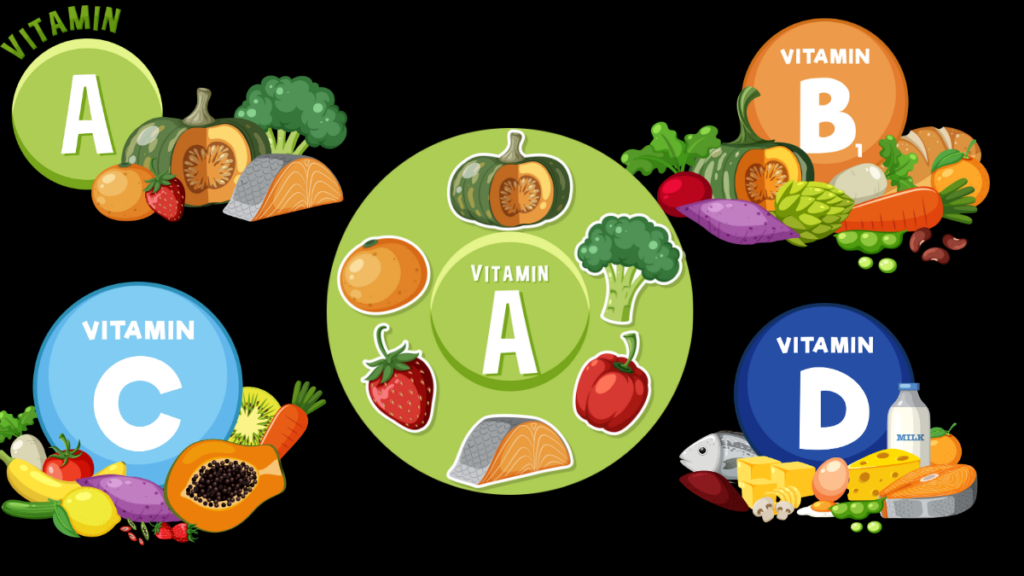
Understanding Vitamin A
Vitamin A, often associated with carrots and vision, goes beyond eye health. Found in both animal and plant sources, it plays a pivotal role in supporting the immune system, promoting skin health, and contributing to overall growth and development.
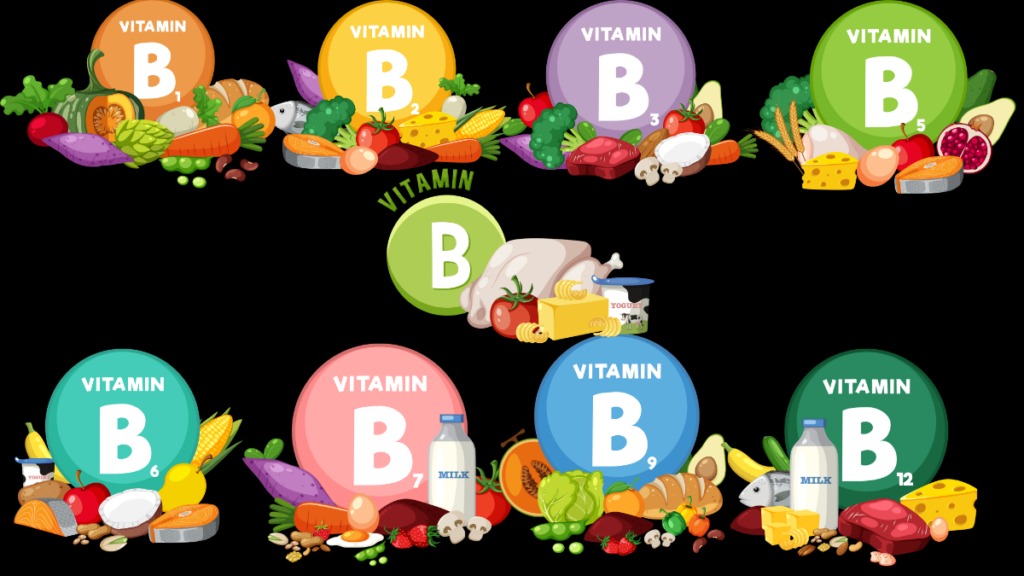
Vitamin B: A Comprehensive Overview
The B-vitamin complex encompasses several key players, each with distinct advantages. Vitamin B1 (thiamine) aids in energy metabolism, B2 (riboflavin) supports cellular functions, and B12 (cobalamin) contributes to neurological health.

Vitamin C: The Immune Booster
Widely celebrated for its immune-boosting properties, Vitamin C is a potent antioxidant. It aids in collagen synthesis, supports skin elasticity, and acts as a shield against common illnesses.
Vitamin D: The Sunshine Vitamin
Nicknamed the “sunshine vitamin,” Vitamin D plays a vital role in calcium absorption and bone health. While sunlight remains a primary source, it can also be obtained through certain foods and supplements.
Vitamin K: Essential for Blood Clotting
Vitamin K takes the spotlight on blood clotting and bone metabolism. Whether from leafy greens or fermented foods, maintaining adequate Vitamin K levels is crucial for overall health.
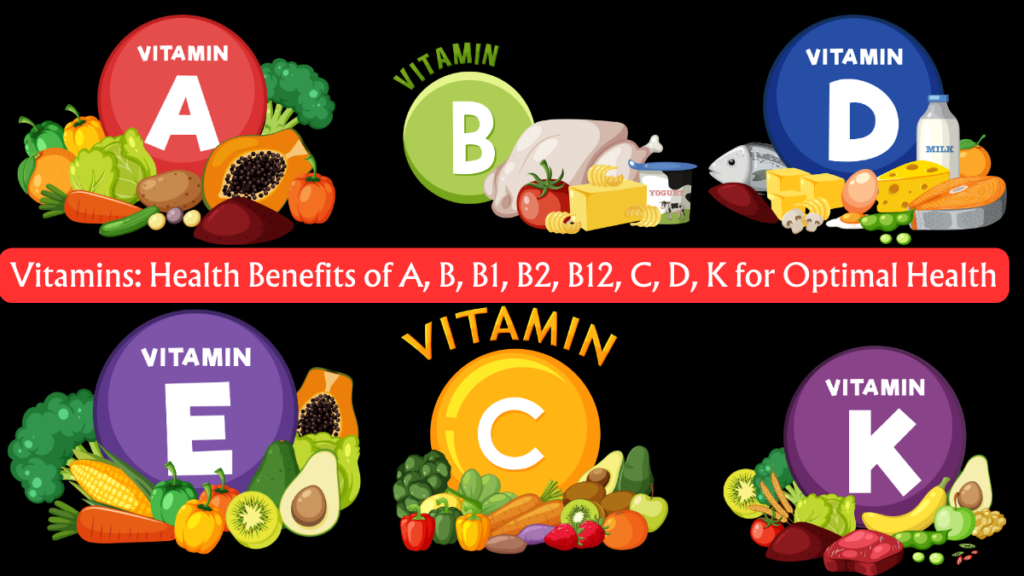
Benefits of Vitamins for Optimal Health
The collective power of these vitamins extends beyond individual benefits. Their synergistic interactions contribute to holistic health, ensuring that the body functions at its best.
Unlocking the Secrets of B Complex
Delving deeper into the B-vitamin complex, we unravel the intricacies of B1, B2, and B12. These vitamins play integral roles in neurological health, energy metabolism, and maintaining vitality.
Maximizing Vitamin Absorption
Knowing which foods enhance vitamin absorption is key to reaping their full benefits. A well-balanced diet, rich in diverse nutrients, ensures that the body efficiently absorbs these vital compounds.
Incorporating Vitamins into Daily Life
Practicality meets nutrition in this section, offering readers creative and easy ways to incorporate vitamin-rich foods into their daily meals. From breakfast to dinner, every bite counts.
The Sunshine Vitamins Role in Mental Health
Beyond its conventional roles, Vitamin D has been linked to mental health. We explore its impact on mood regulation and its potential role in addressing seasonal affective disorder (SAD).
Vitamins for Different Life Stages
Understanding the varying needs of different life stages is essential. Tailoring vitamin intake for children, adults, and seniors ensures that each demographic enjoys the full spectrum of health benefits.
Conclusion
As we conclude this journey through the alphabet of vitamins, it becomes evident that their significance extends far beyond dietary checkboxes. Embracing a vitamin-rich lifestyle is an investment in long-term health and vitality.
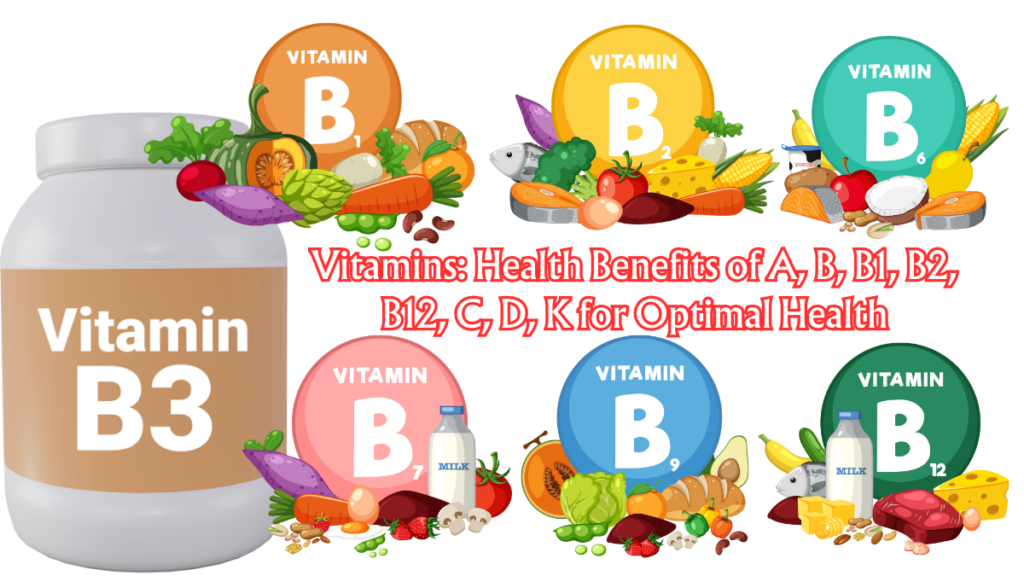
14. Frequently Asked Questions (FAQs)
1. Can I get all my vitamins from food, or do I need supplements?
While a well-balanced diet is ideal, supplements may be recommended in specific cases, such as Vitamin D deficiency.
2. What foods are rich in Vitamin K, and how much do I need daily?
Leafy greens like kale and spinach are excellent sources. The recommended daily intake varies by age and gender.
3. Do cooking methods affect vitamin content in foods?
Yes, certain cooking methods can lead to vitamin loss. Opt for steaming or microwaving to retain maximum nutritional value.
4. Can vitamins prevent chronic diseases?
While vitamins play a crucial role in overall health, they are not a guarantee against chronic diseases. A balanced lifestyle is key.
5. Are there natural ways to boost Vitamin C intake during the winter months?
Absolutely! Citrus fruits, bell peppers, and broccoli are excellent sources of Vitamin C to support your immune system during winter.
Unveiling the health benefits of vitamins is like unlocking a treasure trove of well-being. Whether you’re aiming for radiant skin, robust immunity, or enhanced energy levels, these essential compounds pave the way to optimal health.


